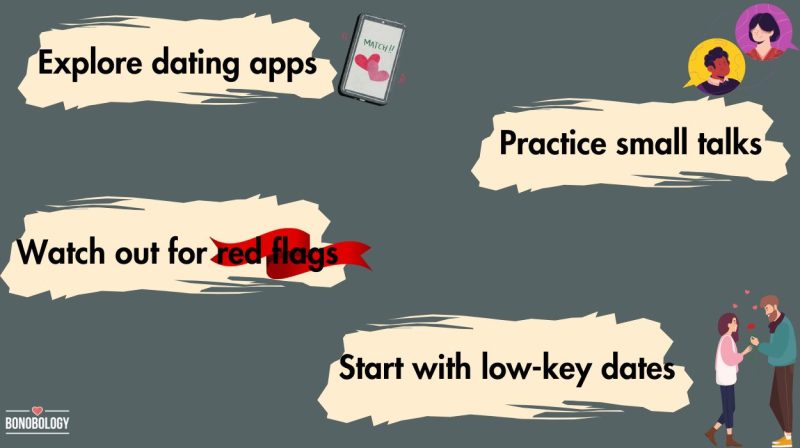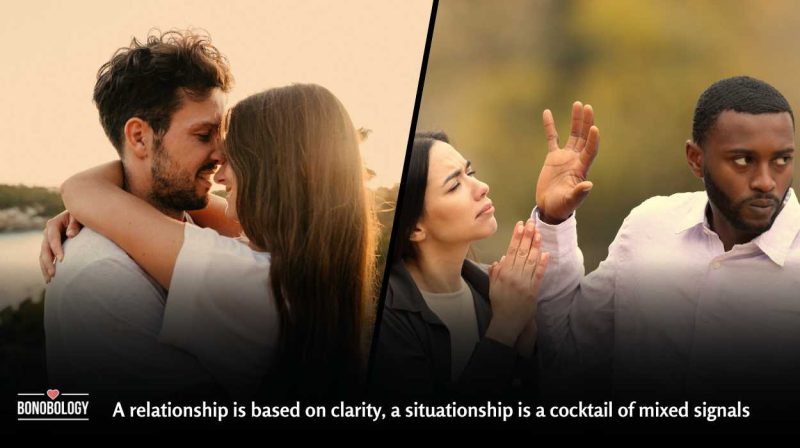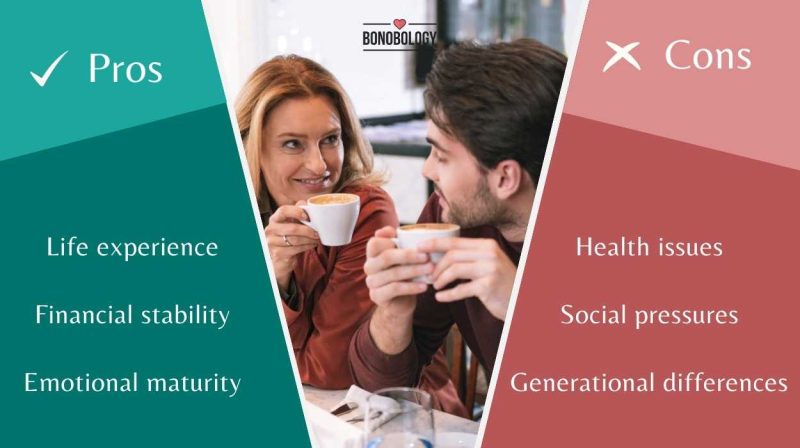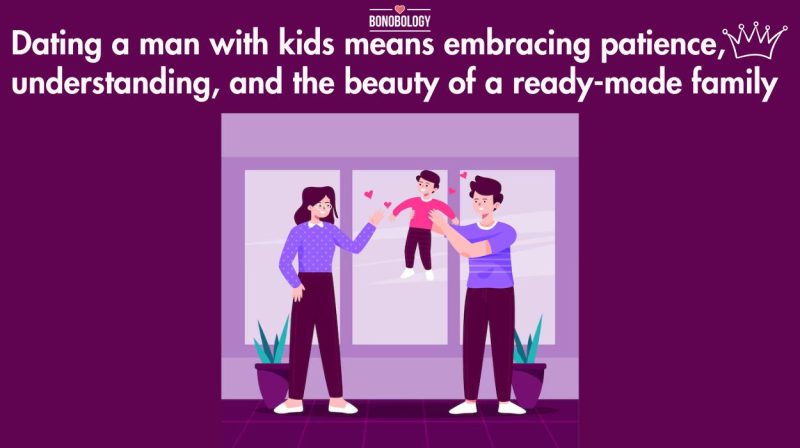Premarital counseling or couples counseling before marriage is educational and often prescribed for those who are planning to get ready for the long-winding road of marriage. Believe Gillian Flynn, the author of Gone Girl, when she wrote, “Marriage is compromise and hard work, and then more hard work and communication and compromise. And then work. Abandon all hope, ye who enter.” Hence, it is pivotal to fine-tune yourself and your partner to each other’s weaknesses that may pose a threat to the success of the marriage.
The purpose of premarital counseling is to help you prepare for the highs and lows of your marital journey. Is premarital counseling required for you and your partner? If you’re on the threshold of starting your marital journey, it pays to understand what is premarital counseling and its benefits to gain perspective about how your relationship can benefit from it.
What Is Premarital Counseling?
Table of Contents
A study shows that the divorce rate in the US has been climbing for baby boomers. This suggests a fall in marital satisfaction with time. Such a situation can cause marriage anxiety in couples who are about to tie the knot. Robyn Parker, author of Why Marriages Last?, describes premarital counseling as, “Programs that seek to engage couples in the processes of reflection and skills training with the aim of promoting and supporting the development of strong and healthy relationships.”
Pre-wedding counseling is an underrated mode of marital education. The importance of premarital counseling lies in the fact that it can help you get to know your partner more deeply, learn and unlearn conflict resolution techniques, talk about possible conflicts in the future, and set yourself up for greater marital satisfaction.
Scott Braithwaite, professor of clinical psychology at Bringham Young University, said in an interview, “Pre-marriage counseling is a great way for people to do their homework about the most important decision they are ever going to make. The process equips them with skills that can prove critical to the survival of the marital bond.”
Related Reading: Prenuptial Agreement – How Do You Know If You Need One?
When should you start premarital counseling?
Well, you should definitely not wait for the wedding day. From the time one of the partners proposes to the wedding, the entire process can be hectic for a couple, leaving very little time for counseling. While these constraints are legitimate, scheduling weekly sessions right when you decide to get married can be helpful.
How long is premarital counseling? The sessions are 60 minutes each, but the number of sessions a couple might need depends largely on the dynamics of their relationship. You may also find several self-help books for engaged couples but in the wedding planning chaos, one-on-one meetings can be more efficient.
However, keeping up with them even as the pressure of wedding planning grows is more important. Planning a wedding can lead to tension and stress between a couple. Premarital counseling sessions can offer a safe space to work out those chinks. It can be a place where you and your partner can sort out your issues, with the guidance of a professional counselor.
What happens at premarital counseling?
What to expect in premarital counseling or how to prepare for first marriage counseling session? Well, stop fretting. Relax and focus on being forthright and honest. You must be ready to open the drawer of things you cannot possibly say to your would-be spouse. If it’s your first time with a pre-wedding counselor, then the marriage and family therapists try to make you comfortable by asking more general questions like how you met or fell in love. After loosening the hinges, more serious issues are addressed.
For example, a counselor might ask the couple about sensitive topics such as being friends with an ex, any conflict in the past, or a tough experience they may have gone through together (like the death of a parent or someone close), as well as other important topics like children, finances, ownership, etc.

The counselor might gain some insight into your families, jobs, friends, and community. They may also give you an ‘expectations in marriage’ worksheet that you have to complete as ‘homework’. This helps a counselor get insight into the kind of couple you are. Based on this, they may offer their suggestions or input.
For example, gender roles have undergone a paradigm shift in recent times. But if one of the spouses is unwilling to embrace this change while their spouse expects them to, it can create a major rift in what could have been, otherwise, a healthy marriage. These sessions help you get past the ‘love you just the way you are’ phase and see the person for who they are.
Related Reading: When The Man Is The Only Breadwinner And The Wife Refuses To Pitch In
Types Of Premarital Counseling
Counseling for couples getting married can be of different types, based on how intense the conflicts can get. But the majority of couples’ workshops follow a method where they emphasize healthy communication skills, financial planning, and intimacy. Some of the most well-known effective strategies are:
1. Gottman Method
The Gottman Method entails marriage and family therapists thoroughly evaluating both partners to comprehend their subconscious inner dialogue. You’re likely to be given a 100 Premarital Counseling Questions PDF here based on the previous research. It works on enhancing the quality of the relationship by helping you become more empathetic in your relationship and equipping you with problem-solving skills that can help you build a stronger relationship.
2. Emotionally Focused Therapy (EFT)
EFT is a short-term therapy that helps to develop new methods of effective and better communication when married couples find themselves clashing. EFT focuses on improving attachment and helps in resolving conflict.
3. Psychodynamic Marriage Counseling
Psychodynamic couples therapy examines the underlying issues by reflecting on the past. The therapists may suggest individual therapy instead of joint sessions. Here, the premarital counseling questions focus on understanding unconscious fears through behavior patterns, or role-plays.
What Are The Benefits Of Premarital Counseling?
One of the key benefits of premarital counseling is that it helps partners clear the air on a host of issues in a healthy way. There may be underlying resentments from the past that can grow if left unattended.
Does your spouse’s insecure attachment style make you uneasy? Does the work stress interfere with your relationship dynamics? Questions like these can form the basis of discussions to have before marriage. A counselor can help smooth those toxic resentments out before you take the big leap.
Still not sure whether pre-wedding counseling is right for you? Here are 12 other benefits of couples counseling before marriage you must factor in before taking a final call on the matter.
1. Premarital advice helps your work through important issues
Having certain expectations from your partner without ever conversing about them can lead to marital clashes. Like when is the right time to invest in a house, when to have children, and at what intervals. Many of these expectations can become deal breakers if they’re not communicated timely. The matters that need planning can be talked about beforehand in a premarital counseling program.
2. Purpose of premarital counseling – Improved conflict resolution skills

After a couple settles into the rhythm of marital life, newer conflicts are bound to take hold. Whether it is your spouse binging on Netflix too much or a harmless handsy coworker at a party, issues arise, no matter how petty or serious, and they must be dealt with. A counselor can offer premarital advice as to how to react to different situations as and when they arise.
If differences arise, yelling, throwing stuff, or angry parting is not the right approach to conflict resolution. Premarital online therapy or in-person sessions help you learn how to resolve conflict effectively, sort out certain issues with a calm discussion, and laugh off the others.
Related Reading: Paying For The Wedding – What’s The Norm?
3. You learn to adjust to each other’s behavior patterns
Does your partner cringe at the thought of you saying, “Me likey”, in the middle of a cooking show you are watching? Does the sound of your partner’s chewing drive you up the wall? While couples often find it hard to point out these little quirks and annoying habits to each other, they are bothered by them.
When you have to put up with them day after day, these seemingly small annoyances can turn into big triggers. A counselor will bring out all the habits and behaviors you might want to adjust to suit each other better in your married life. A counselor will also bring to your attention all the things that are common to both of you, so you can have a higher level of comfort with each other. A healthy outlet in a therapy session, with a professional to help you, is better than a disproportionate outburst years later.
4. You identify the potential areas of conflict
It prepares you better for a fight in the future and truly shows how you should handle it. Joanna, a homemaker from Ohio, told us, “My husband wanted to look at community centers for our big day instead of a banquet or a hotel, something that my family thought was miserly. This difference in our outlooks made it impossible to talk to each other.” Pre-marital counseling can help recognize areas of conflict that don’t become apparent before the wedding. “
After participating in these programs, couples reported or were observed to be better at resolving relationship problems using effective communication styles, and on average, they reported higher levels of relationship quality,” says Jason S Carroll, Bringham Young University professor of marriage, family, and human development, in an interview.
5. You learn to acknowledge core values and respect differences
How do you figure out if your dream job in a different city is clashing with your spouse’s promotion in another? When you bring questions like these to the forefront, it helps not just the counselor but you as well. Premarital therapy often uses an ‘identifying core beliefs’ questionnaire that helps you acknowledge your differences with an open mind, complete honesty, and an outlook to embrace the differences rather than trying to negate them. This helps you identify the factors that will help you make decisions that respect everyone’s values.
Related Reading: Wanted: New-Age Indian Husband! Requirements: To Lead and Follow Too!
6. You learn how to deal with expectations from marriage
Everyone has an idea of marriage in their head. However, your marriage may not necessarily pan out as per your expectations. That can lead to disappointment. Talking about such expectations beforehand ensures a marriage with a strong foundation. Being engaged means having an open conversation about your expectations from marriage. However, not everyone is comfortable expressing themselves or even knows that they have latent insecurities that they must share. That is what premarital counseling programs are there for.

7. You start a discussion about finances
Does your spouse indulge in more high-end shopping once a month while you buy things as and when you need them? What about sharing household expenses, savings, and investing in assets? One of the things you should know about your partner before marriage is their outlook toward money and financial management, and vice versa.
Saving and expenditures after marriage can be difficult conversations but they must be addressed well in time. Besides these, counselors can also advise you on how to plan a monthly budget, set aside as “fun money” and decide who pays for what bills. These are some of the finer details that need can be sorted during counseling sessions so that things do not seem overwhelming after marriage.
8. You get on the same page about children
How many children are you going to have? A house full or are you more inclined to have a single child? Or do you want to remain child-free? Does your spouse agree? The parenting question can be a deal-breaker. Is there a time within which you want to just focus on your career, have fun, and travel before settling down with kids?
These counseling sessions help you get on the same page when it comes to having children. Would they ever be up for adopting a baby? Would the child be left at daycare, or would one parent take a sabbatical to raise the child? They might seem inconsequential, but these are some of the most important. A premarital counseling session can help chalk out these details, so you know what you are getting into.
9. You learn to establish boundaries with families
Other questions to ask your significant other before marriage include their stance on family and privacy. How many family gatherings can you pass without it turning into an issue? Will the extended family have a say in your married life? How many times can the parents visit?

These can be difficult questions to bring up and address but these sessions provide you a safe space to talk about each other’s families, with a skilled professional present to steer the course of the conversation.
10. You learn how to create a safe space for intimacy
Intimacy is an important aspect of a couple’s relationship dynamics. But if both partners are not on the same page about it, it can lead to dissatisfaction, discord, and distance in a marriage.
Premarital counseling sessions will teach you about unlocking intimacy and being more in tune with each other’s needs. If need be, you can also decide on the time commitment that feels satisfactory to you both and revisit the arrangement and make adjustments as you grow and evolve.
11. Counseling helps address faith-based beliefs and differences
If one of you is devout and the other an atheist, you need to set the boundaries around religious talk in the house. Is going to your place of faith once a week important to you? Are religious leaders going to govern important life decisions? Also, if you have children, what religious beliefs would they be raised with? Will one of the partners expect them to attend Sunday school?
Counseling to reduce religious conflict often focuses on such questions. It’s better to be open about it from the beginning than to engage in a heated argument every Sunday morning. Besides, different religious beliefs must be discussed in a manner that does not hurt either partner’s sentimentality and create conflicts in the future.
12. You get to know your partner’s social life

How often will you socialize with friends once you are married? If one doesn’t feel like going, can the other partner go alone or will they be expected to cancel plans? How will you find a middle ground by compromising on which gatherings to attend and which ones to skip? Post-marriage, you will become a part of each other’s social circles. Pre-wedding counselors help you embrace this reality and come up with a functional arrangement to handle social engagements and obligations.
Key Pointers
- Premarital counseling is a series of programs that seek to educate couples in the processes of reflection and skills training to promote and support the development of strong and healthy relationships
- There are different methods of premarital counseling, though all focus on communication
- Premarital counseling helps identify potential conflicts and ways to deal with them
Is premarital counseling required for everyone? Well, marriage is not easy. So even if you don’t think you need it, just give it a try. Is premarital counseling worth it? Though you may be skeptical about it, its benefits outweigh the cost of premarital counseling. You can also choose to receive premarital counseling online. Online therapy can be a great boon if you can’t make the time amid all those wedding planning chores. You can also choose to get premarital counseling workbooks available online, but for the best experience, human intervention is needed.
FAQs
Research indicates that it can be an effective tool in ironing out the underlying cranks that can turn into major stumbling blocks in a marital journey later on. Does premarital counseling work? Statistics reveal that couples counseling before marriage can improve the marital success rate by 30%. The importance of premarital counseling is proven by the fact that 44% of couples today seek couples workshops or some sort of counseling for engaged couples before walking down the aisle, as suggested by this study.
The national average cost of premarital counseling in the US is between $125 and $175 per session, according to WhatItCosts. And you will need multiple sessions. At Bonobology, you can avail the services of experienced counselors for a fee ranging from $25 to $50 per session. You can opt for engagement counseling even if you don’t see any potential problems in your relationship. The end objective is to evolve as better versions of yourselves and a better team as a couple.
Yes, you can absolutely seek premarital counseling online. Marriage is a sacred bond, and we understand and value that. But it also needs a solid foundation to thrive. Our marriage and family therapists are available to offer counseling and online therapy via WhatsApp, Hangouts, Zoom, or your preferred mode of communication.
5 Conversations To Have Before Marriage To Avoid Complications Later
Your contribution does not constitute a charitable donation. It will allow Bonobology to continue bringing you new and up-to-date information in our pursuit of helping anyone in the world to learn how to do anything.






















